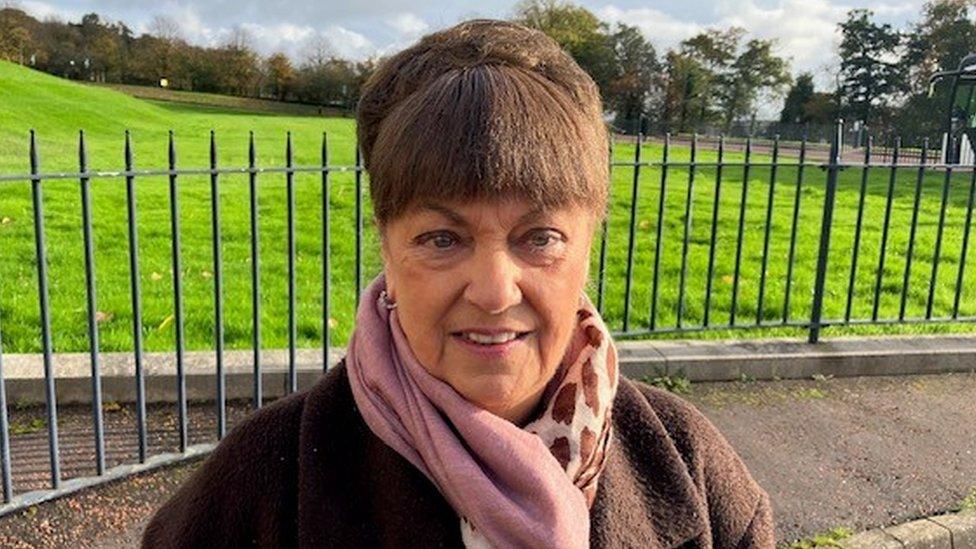Archbishop Eamon Martin calls for Troubles truth recovery process
- Published
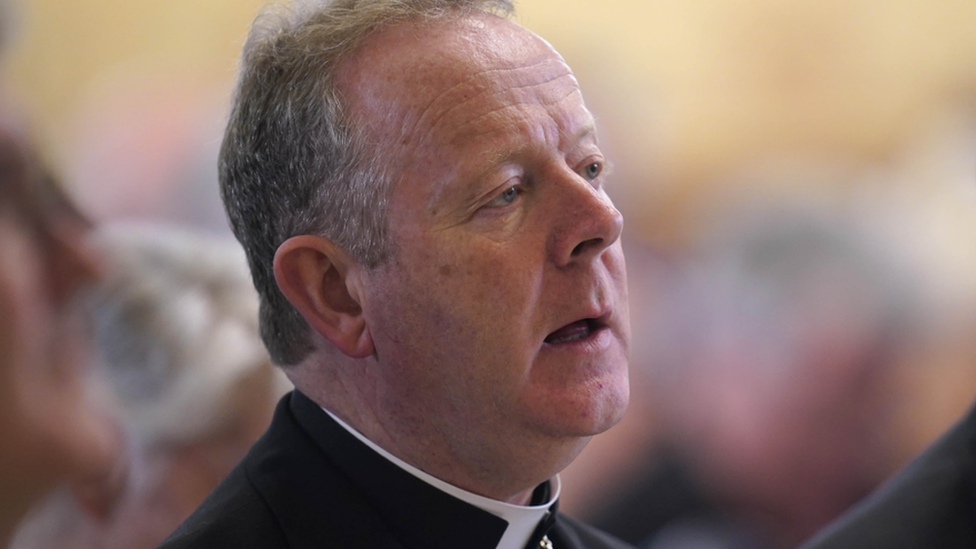
Archbishop of Armagh Eamon Martin stressed the need to address "the legacy of our troubled past"
The head of the Catholic Church in Ireland has called for a trusted "investigation and information recovery process" following the publication of the Kenova report.
Archbishop of Armagh Eamon Martin was speaking at the annual Mass for the families of the Disappeared in Saint Patrick's Cathedral, Armagh, on Sunday.
He stressed the need to address "the legacy of our troubled past".
The interim Kenova report was published earlier this month.
It examined the activities of the Army spy known as Stakeknife, who operated at the heart of the IRA during the Troubles in Northern Ireland.
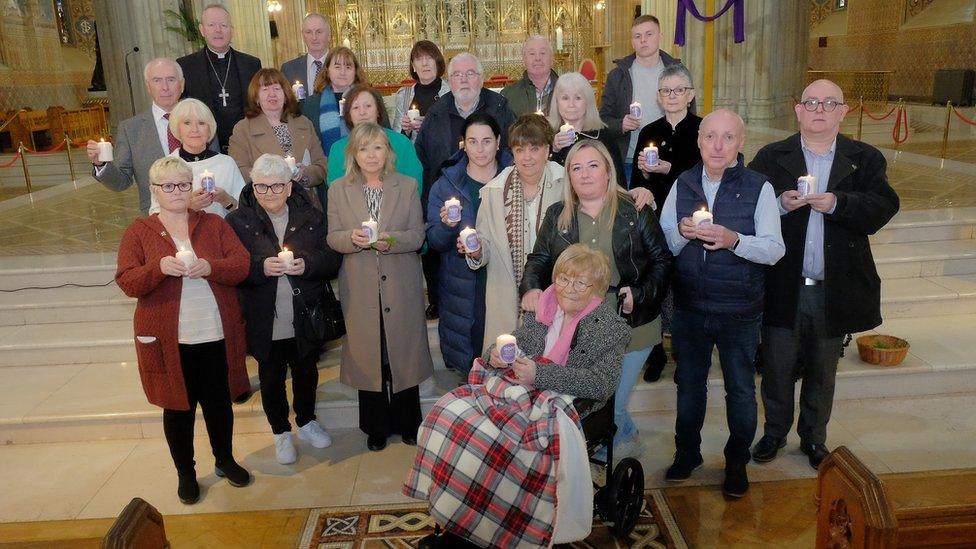
Mr Martin with members of the congregation for the annual Mass for the Disappeared
The report found that Stakeknife probably cost more lives than he saved.
It also found that the security forces failed to prevent some murders to try to protect their agents in the IRA.
It pointed out that it was the IRA leadership that had "commissioned and sanctioned" the actions of its so-called internal security unit - of which Stakeknife was a member - and "committed brutal acts of torture and murder".
'The pursuit of justice'
Archbishop Martin, who is the Catholic Primate of All Ireland, said "we cannot accept the simplistic idea of 'drawing the line' under our past'".
He added: "We must continue to seek an investigation and information recovery process which can be fully trusted by victims and survivors and which at least keeps the door open to accountability and the pursuit of justice."
To date, the remains of 13 of the 17 Disappeared - those who were abducted, murdered and secretly buried by republicans during the Troubles - have been recovered.
Archbishop Martin said that the fact that the Kenova report's author, now PSNI Chief Constable Jon Boutcher, acknowledged that "information about legacy cases has too often been withheld and suppressed" draws attention to families' "long and painful pursuit of information" about where their loved ones were buried.
Addressing families attending the Mass, Archbishop Martin said: "Jon Boutcher makes it clear that families like yours and others who are coping with the legacy of our conflict simply cannot find peace or trust until the truth emerges, and your loss is properly acknowledged."
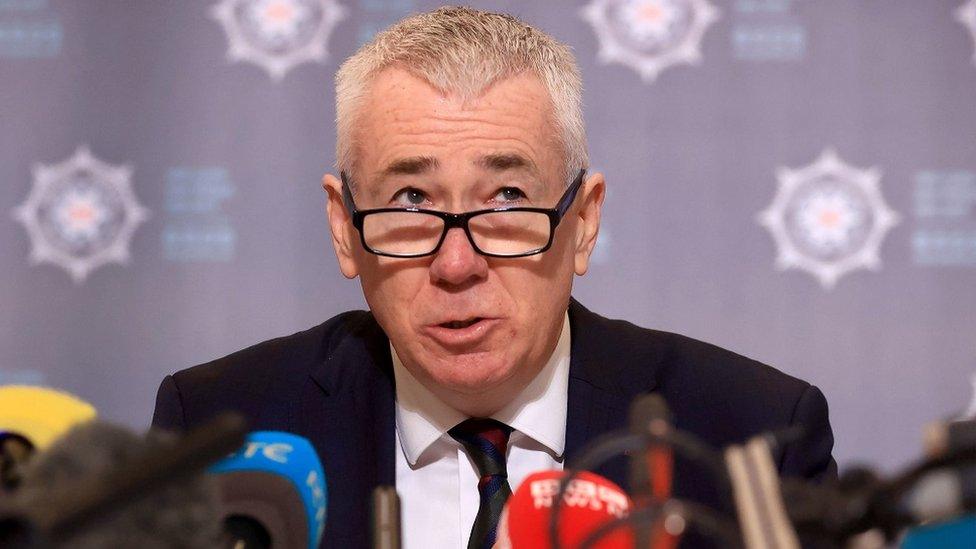
PSNI Chief Constable Jon Boutcher, author of the Kenova report
He said the Kenova report highlights a "failure to properly acknowledge the hurt inflicted on families during the Troubles" and a "lack of disclosure about murder which wouldn't be tolerated anywhere else".
"Thankfully, many of you have been able to recover the bodies of your loved ones and give them a Christian burial, but even then it took far too long for that to happen, and indeed some of you still endure the agonising suffering of not having answers," he said.
"If reconciliation is to happen then all families of our victims need to continue to be recognised, loved ones appropriately memorialised, and the truth - however unpalatable - of what happened needs to continue to be unearthed."
Related topics
- Published8 March 2024
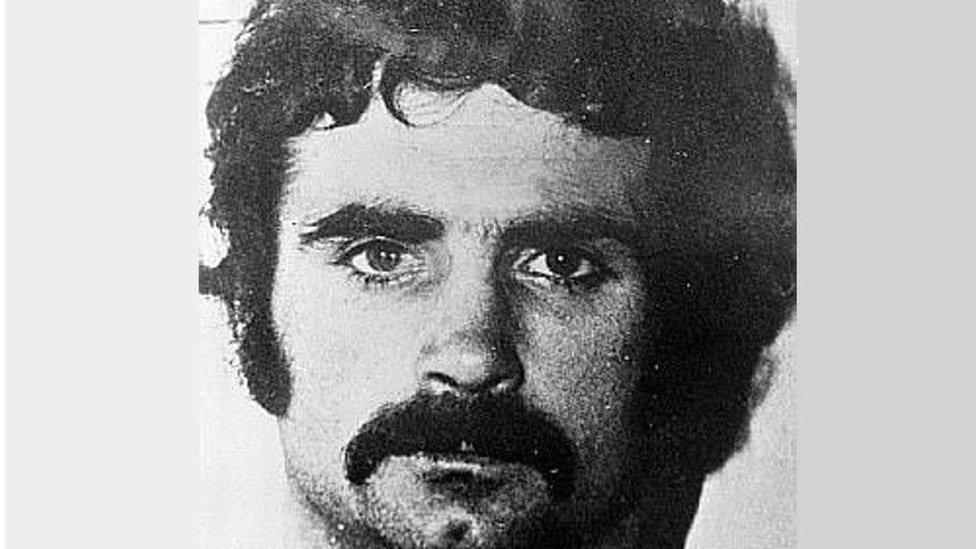
- Published7 March 2024
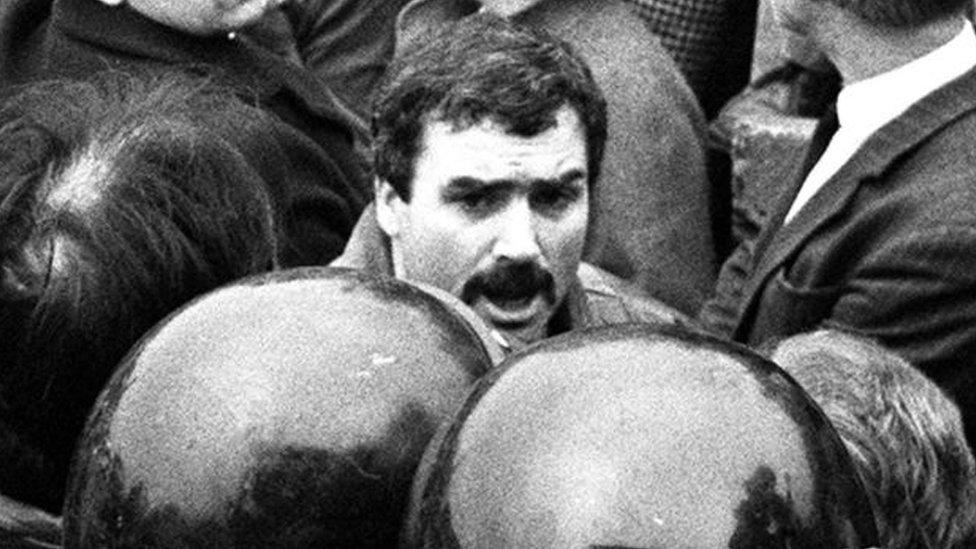
- Published8 March 2024
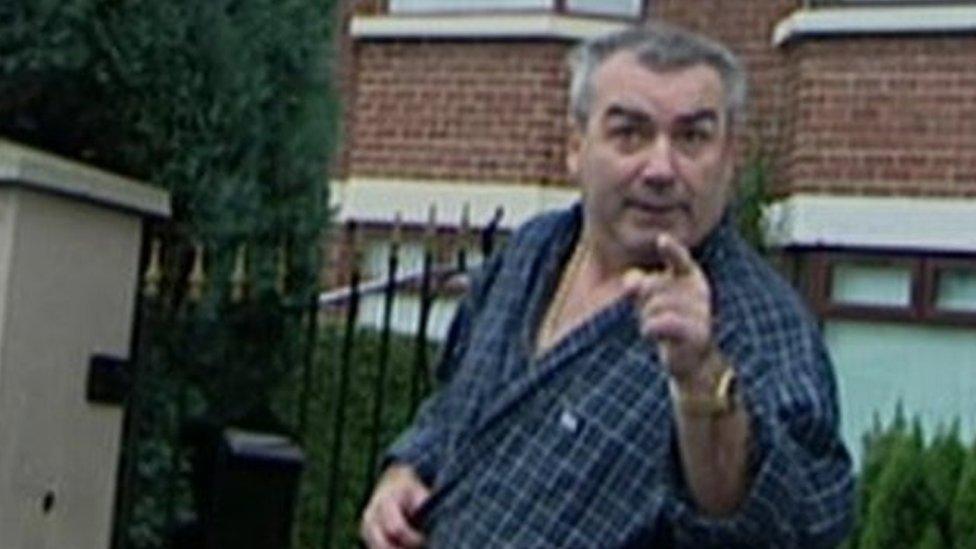
- Published2 November 2023
